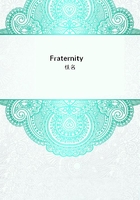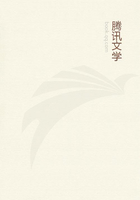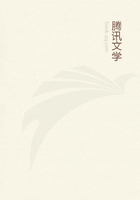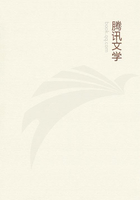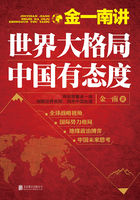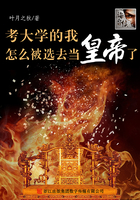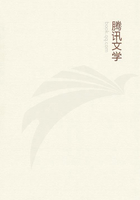O Critias, I said, no sooner had you opened your mouth, than I pretty well knew that you would call that which is proper to a man, and that which is his own, good; and that the makings (Greek) of the good you would call doings (Greek), for I am no stranger to the endless distinctions which Prodicus draws about names. Now I have no objection to your giving names any signification which you please, if you will only tell me what you mean by them. Please then to begin again, and be a little plainer. Do you mean that this doing or making, or whatever is the word which you would use, of good actions, is temperance?
I do, he said.
Then not he who does evil, but he who does good, is temperate?
Yes, he said; and you, friend, would agree.
No matter whether I should or not; just now, not what I think, but what you are saying, is the point at issue.
Well, he answered; I mean to say, that he who does evil, and not good, is not temperate; and that he is temperate who does good, and not evil: for temperance I define in plain words to be the doing of good actions.
And you may be very likely right in what you are saying; but I am curious to know whether you imagine that temperate men are ignorant of their own temperance?
I do not think so, he said.
And yet were you not saying, just now, that craftsmen might be temperate in doing another's work, as well as in doing their own?
I was, he replied; but what is your drift?
I have no particular drift, but I wish that you would tell me whether a physician who cures a patient may do good to himself and good to another also?
I think that he may.
And he who does so does his duty?
Yes.
And does not he who does his duty act temperately or wisely?
Yes, he acts wisely.
But must the physician necessarily know when his treatment is likely to prove beneficial, and when not? or must the craftsman necessarily know when he is likely to be benefited, and when not to be benefited, by the work which he is doing?
I suppose not.
Then, I said, he may sometimes do good or harm, and not know what he is himself doing, and yet, in doing good, as you say, he has done temperately or wisely. Was not that your statement?
Yes.
Then, as would seem, in doing good, he may act wisely or temperately, and be wise or temperate, but not know his own wisdom or temperance?
But that, Socrates, he said, is impossible; and therefore if this is, as you imply, the necessary consequence of any of my previous admissions, I will withdraw them, rather than admit that a man can be temperate or wise who does not know himself; and I am not ashamed to confess that I was in error. For self-knowledge would certainly be maintained by me to be the very essence of knowledge, and in this I agree with him who dedicated the inscription, 'Know thyself!' at Delphi. That word, if I am not mistaken, is put there as a sort of salutation which the god addresses to those who enter the temple; as much as to say that the ordinary salutation of 'Hail!'
is not right, and that the exhortation 'Be temperate!' would be a far better way of saluting one another. The notion of him who dedicated the inscription was, as I believe, that the god speaks to those who enter his temple, not as men speak; but, when a worshipper enters, the first word which he hears is 'Be temperate!' This, however, like a prophet he expresses in a sort of riddle, for 'Know thyself!' and 'Be temperate!' are the same, as I maintain, and as the letters imply (Greek), and yet they may be easily misunderstood; and succeeding sages who added 'Never too much,'
or, 'Give a pledge, and evil is nigh at hand,' would appear to have so misunderstood them; for they imagined that 'Know thyself!' was a piece of advice which the god gave, and not his salutation of the worshippers at their first coming in; and they dedicated their own inscription under the idea that they too would give equally useful pieces of advice. Shall I tell you, Socrates, why I say all this? My object is to leave the previous discussion (in which I know not whether you or I are more right, but, at any rate, no clear result was attained), and to raise a new one in which I will attempt to prove, if you deny, that temperance is self-knowledge.
Yes, I said, Critias; but you come to me as though I professed to know about the questions which I ask, and as though I could, if I only would, agree with you. Whereas the fact is that I enquire with you into the truth of that which is advanced from time to time, just because I do not know;and when I have enquired, I will say whether I agree with you or not.
Please then to allow me time to reflect.
Reflect, he said.
I am reflecting, I replied, and discover that temperance, or wisdom, if implying a knowledge of anything, must be a science, and a science of something.
Yes, he said; the science of itself.
Is not medicine, I said, the science of health?
True.
And suppose, I said, that I were asked by you what is the use or effect of medicine, which is this science of health, I should answer that medicine is of very great use in producing health, which, as you will admit, is an excellent effect.
Granted.
And if you were to ask me, what is the result or effect of architecture, which is the science of building, I should say houses, and so of other arts, which all have their different results. Now I want you, Critias, to answer a similar question about temperance, or wisdom, which, according to you, is the science of itself. Admitting this view, I ask of you, what good work, worthy of the name wise, does temperance or wisdom, which is the science of itself, effect? Answer me.
That is not the true way of pursuing the enquiry, Socrates, he said; for wisdom is not like the other sciences, any more than they are like one another: but you proceed as if they were alike. For tell me, he said, what result is there of computation or geometry, in the same sense as a house is the result of building, or a garment of weaving, or any other work of any other art? Can you show me any such result of them? You cannot.

